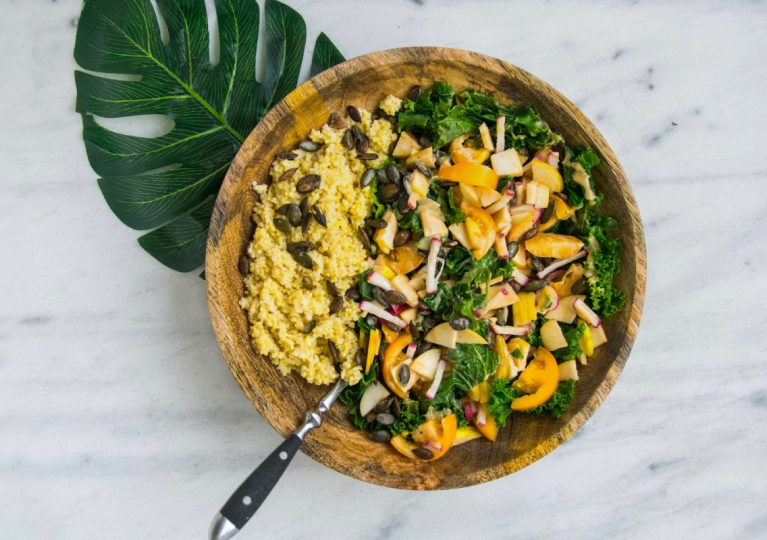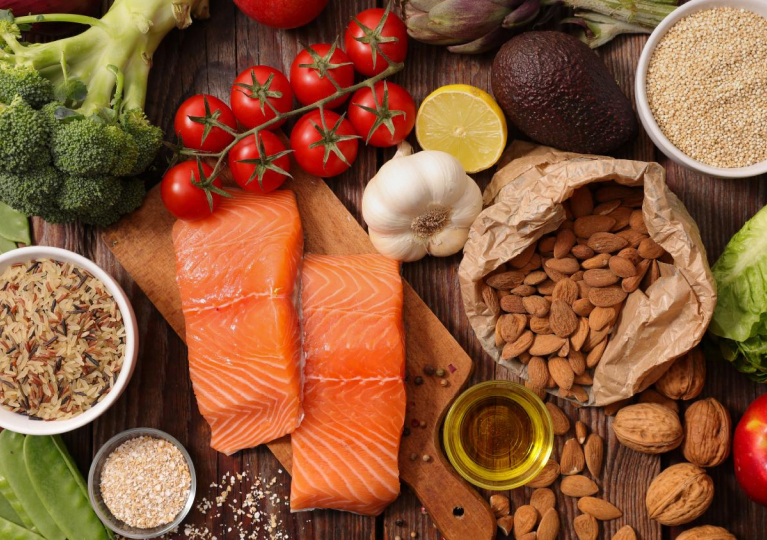At high school and collegiate level, football players work day in day out to inculcate and polish their skills. At no point in time, you would want to face a situation where your body is not backing your training properly. For that, you need to keep your body in mint shape as well.
If you aren’t strong and fit enough to make it through the training routine, your body will not properly respond to whatever exercise you do.
This is where the need to stay healthy comes into play. A High School football player must give precise emphasis on the diet he takes. Health is the bare necessity to match pace with the demands of the sport.
Most professionals advocate the need to follow a strict football diet plan while training. Because when you will take care of the needs of your body, your body will back your training routine more smoothly.
Today we will discuss the diet to meet your football training requirements, at the high school football and college football level.
General Instructions for a Healthy Football Diet
- Eat at least three meals a day: these meals ideally should be consumed at intervals of 4-5 hours. Divide your daily protein and carbs needs into proportions and make potions with each breakfast, lunch, and dinner. Make breakfast the best and richest meal of the day.
- Skipping a meal is never an option: most of the time when you don’t feel hungry you will resort to skipping meals. Breakfast is the more likely to fall prey to it. Skipping a meal is a really bad option as it breaks the entire routine of the body. If you aren’t feeling hungry, still try to eat some light stuff, maybe some milk, protein bars, and shake anything of your taste.
- Don’t just go on eating anything that comes before you. You need to keep a check at your weight as well because being overweight will affect your speed and agility.
Components of a Healthy Diet for Football Players
Feast Upon Loads of Protein:
There is a famous conception for athletes that ” Eat 1gram of protein for each pound of your body weight “. That means if you weigh 200 pounds you should ideally consume 200 grams of protein each day.
But don’t consume the entire daily need of the protein at once, the body won’t be able to absorb the entire protein. Divide the protein consumption into batches of 40-50 grams each, at regular intervals during the day.

Add Carbohydrates to Your Diet:
Carbohydrate is what fuels you for the energy needs during the training and workout. A general saying is that add 2-3 grams of carbs for each pound of your weight. So if your weight is 200 pounds you must be taking 400-600 grams of carbohydrates in your diet. Fibrous carbohydrates can also be resorted to in order to keep your digestive tract in good shape.
Intake Lesser Fat:
Fat intake of as low as 30% is sufficient for a football player to keep him up and running. Don’t give up on consuming fat at all because fat is essential in the transportation of vitamins A, E, D, and K inside the body. For training athletes, monounsaturated and polyunsaturated fats are the best version of fats available because they are extracted from natural sources and are easier to breakdown inside the body. You can get such fats from vegetable fats in fish, all kinds of nuts, and avocados.
Vitamins & Minerals Intake
There are over 40 vitamins and minerals that our body needs to function properly. But there are some major ones without which you cannot be healthy. These are Vitamins A, C, and D, calcium, magnesium, and potassium. Ideally, you should meet the demand for such vitamins and minerals through the whole foods but the harsh reality is that this is not achieved in most of the cases.
So for better results resort to some natural supplements easily available in the market.
Drink Ample Amount of Water:
Water aids in keeping your metabolism in great state, moreover it is helpful for digestion. Of course, you can take other energy drinks and Gatorade but water has its own utility and nothing can replace it.
Talking about the constituents of the meals for pre-training, during, and post-training.
- Pre-Training Meals:
Pre-training meals are aimed at preparing your body for the training and imparting enough nutrition to it to go through the training workout.
Eat carbohydrates in small portions, it may be some cereals. Add some protein to your plate, you can take a handful of nuts, maybe a piece of lean meat, low-fat yogurt, or chocolate milk.
With a solid diet don’t forget to drink 20 oz of sports drink or water, whatever you are accustomed to taking.
- During the Training:
During the training, you are not supposed to eat any solids. You just have to keep a track of the amount of body fluid lost in the form of sweat. You need to replenish it properly. To calculate the liquid requirements each hour of the training there’s a formula
Add the amount of liquid consumed during the training to the difference in the post and pre-exercise weight of your body. Then divide it by the total hours of training. Take the help of the example for better understanding.
For example, the pre-training weight of your body was 190 pounds and the post-training weight is 188 pounds. The difference is 2 pounds or 32 ounces. You have practiced for 2 hours and drank 15 oz of liquid in between the training.
The amount of liquid to be consumed can find out as
32+15=47/2=23.5 ounces of fluid intake is required by your body per hour.
- 15 Minutes Post-Training:
Don’t start pouring water or energy drinks into a body as soon as you end the training. Allow some time for your body to cool down.
- You can take a protein bar with a high-calorie content of about 400 calories.
- Take a sandwich, maybe a peanut butter or veggie sandwich to fulfill your carbohydrates requirements.
- You can consume some nuts.
- Top up yourself with water and energy drinks.
Recommended Read: Best Quarterback Workout Guide for Football Players

